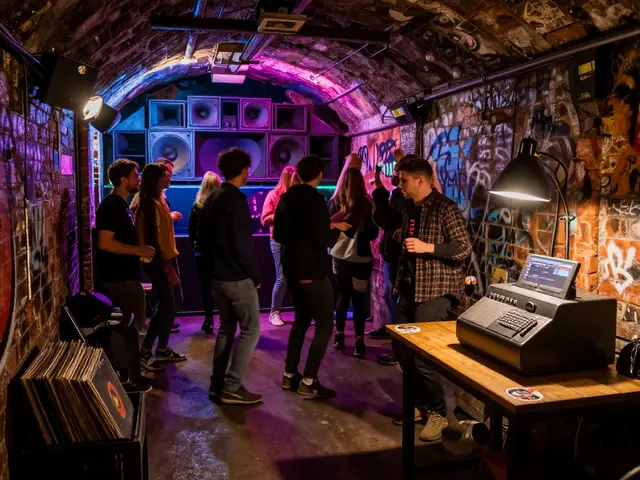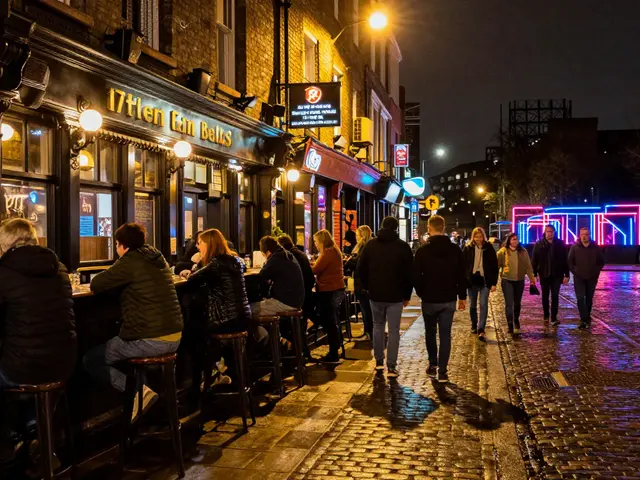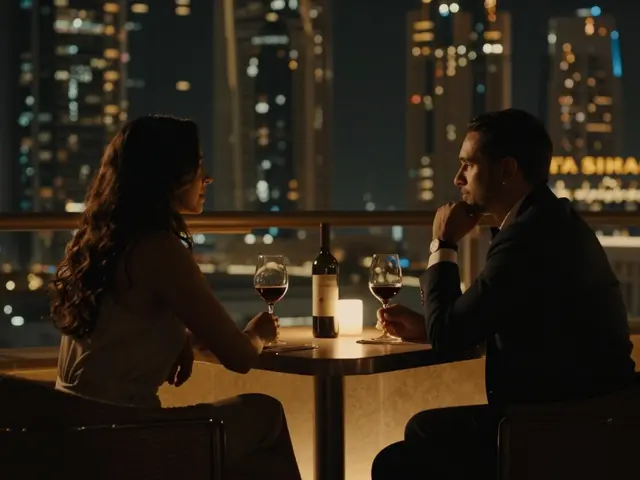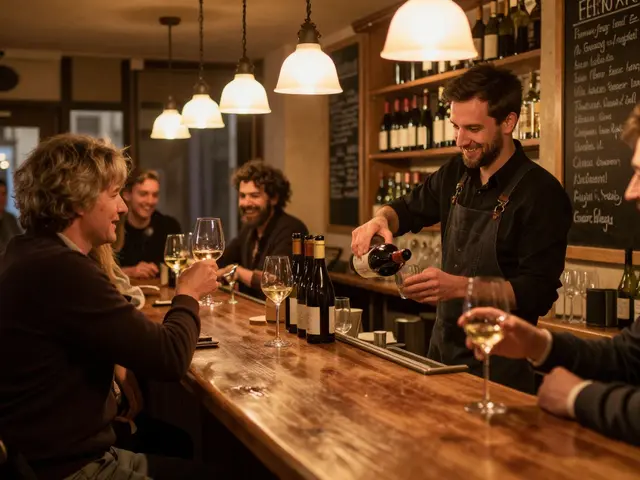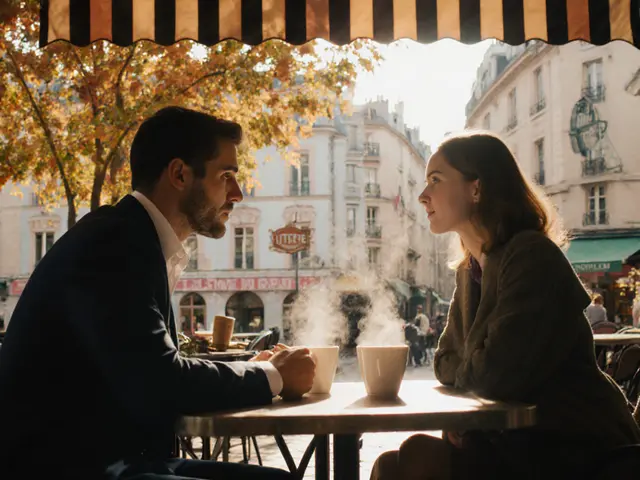London’s nightlife isn’t just about loud clubs and crowded pubs. Beneath the neon lights and bass-heavy beats, there’s a quieter, deeper rhythm - one that draws people not for escape, but for connection. If you’re looking for places where the night feels like a ritual, not a rave, you’re not alone. More people than ever are trading party hopping for stillness, and London has quietly built a network of spaces that honor that shift.
Where the Night Feels Like a Breath
Most nightspots in London are designed to fill you up - with drinks, music, noise. But the places that serve spiritual seekers do the opposite. They empty you out. At Shambhala in Shoreditch, you won’t find a single cocktail with sugar syrup. Instead, there’s house-made turmeric tonics, adaptogenic elixirs, and herbal teas brewed in ceramic pots. The lighting is low, the music is ambient - think Tibetan singing bowls layered with soft synth pads - and the chairs are deep enough to sink into. People come here after work to sit in silence for an hour, or join the weekly Sound Bath on Thursdays, where gongs and crystal bowls guide the room into deep relaxation. No one checks their phone. No one talks unless they want to. It’s not a bar. It’s a sanctuary with a bar.
Evening Rituals That Don’t Require a Guru
At The Lantern in Camden, the night begins at 7 p.m. with a guided breathing exercise led by a volunteer facilitator - no fee, no membership. You sit on cushions on the floor, eyes closed, following a 10-minute rhythm of inhale-hold-exhale. Afterward, you’re offered a cup of matcha or chamomile with rose petals. The walls are lined with hand-painted mandalas, and the ceiling has a slow-moving projection of stars. It’s not a meditation center. It’s not a café. It’s both. And it’s open until 2 a.m. every night. Regulars say they come not to ‘find themselves,’ but to remember who they were before the city got loud.
Books, Tea, and Silence After Midnight
Hidden behind a bookshop in Bloomsbury, The Quiet Room opens only after 10 p.m. You walk past shelves of poetry, mysticism, and Eastern philosophy, and into a room where the only light comes from beeswax candles. There are no tables, just low benches and floor cushions. You can read, journal, or sit. There’s a tea station with loose-leaf blends named after ancient texts - ‘Tao of Stillness,’ ‘Zen Dust,’ ‘Sufi Whisper.’ No Wi-Fi. No music. No staff will ask you what you’re doing here. One woman came every Tuesday for six months without speaking. On the seventh week, she left a note: ‘I finally stopped running.’

When the Music Becomes a Prayer
Some spiritual nights in London don’t ask you to be silent - they ask you to move. Drumming Under the Moon, held monthly in a converted chapel in Peckham, brings together 50-80 people for a live drum circle under a dome of projected night skies. No instructors. No choreography. Just hand drums, frame drums, and shakers passed around. People come from all walks - nurses, teachers, software engineers, retirees. One man told me he started coming after losing his wife. ‘The rhythm didn’t fix anything,’ he said. ‘But it let me feel something without words.’ The event ends with everyone standing in a circle, holding hands, silent for three minutes. Then they go home.
Where the Night Doesn’t End - It Transforms
At St. Mary’s Crypt in Islington, a former 18th-century church basement now hosts monthly ‘Sacred Cinema’ nights. No popcorn. No chatter. Just a 90-minute film - think Terrence Malick, Tarkovsky, or Japanese Zen documentaries - projected onto a stone wall. The seating is wooden pews. The sound is crystal clear. The experience is meant to be felt, not analyzed. After the film, there’s tea and quiet reflection. No Q&A. No hashtags. Just the echo of what the images left behind.
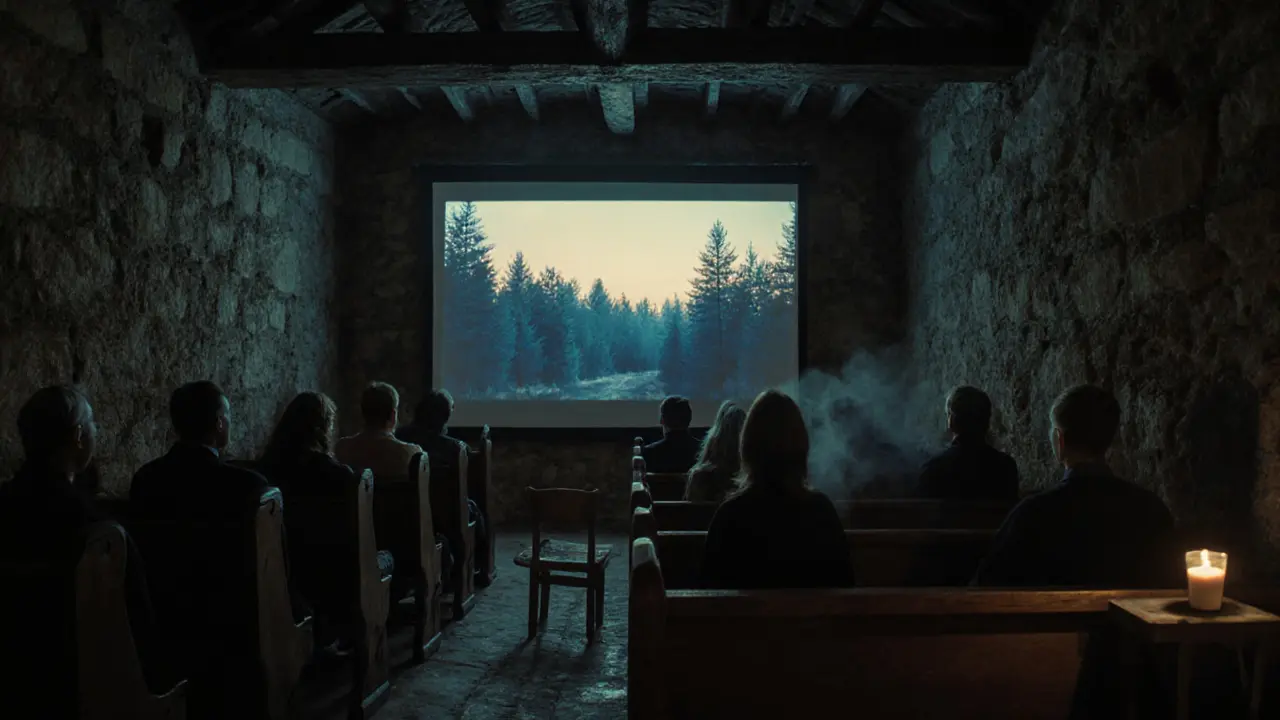
What Makes These Places Different
These aren’t gimmicks. They’re not ‘wellness trends’ dressed up in fairy lights. They exist because people asked for them - and the city listened. Unlike typical nightlife, which thrives on stimulation, these spaces thrive on surrender. They don’t sell you a good time. They offer you a true pause. And in a city that never stops moving, that’s rare.
The common thread? No pressure. No expectations. No need to be ‘spiritual’ to walk in. You don’t need to meditate, chant, or wear linen. You just need to be tired - of noise, of performance, of pretending. These places meet you where you are. And if you’re ready to let go, even for an hour, they’ll hold you.
How to Find Your Night
Start small. Pick one place. Go once. Don’t go with friends. Don’t go to post about it. Just go. Bring a notebook if you want. Leave your phone in your coat. Sit. Breathe. Listen. If you feel something shift - even a little - you’ve found what you were looking for.
London doesn’t need another club. It needed spaces where the night doesn’t demand anything - except your presence.
Do I need to be spiritual to visit these places?
No. You don’t need to identify as spiritual, meditate regularly, or follow any belief system. These places welcome anyone who’s tired of noise and wants to sit quietly, listen, or move without judgment. Many visitors come just because they needed a break from the usual nightlife - and stayed because they felt something they couldn’t name.
Are these places expensive?
Most are affordable. Entry to Shambhala is £5-£8, which includes a drink. The Lantern is donation-based - you pay what you can, or nothing at all. The Quiet Room is free. Drumming Under the Moon asks for £10, which covers the space and instruments. These aren’t luxury experiences - they’re community ones. The cost isn’t meant to exclude; it’s meant to sustain.
Are these places open every night?
No. Most have specific hours or weekly events. The Lantern is open until 2 a.m. daily. Shambhala hosts Sound Baths on Thursdays and open-mic poetry on Sundays. The Quiet Room opens only after 10 p.m., Tuesday through Saturday. Drumming Under the Moon happens once a month. Always check their Instagram or website before going - they don’t advertise like clubs do.
Is this just a trend for millennials?
Not anymore. The average age of visitors to these spaces is 38. You’ll see retirees reading poetry at The Quiet Room, nurses after night shifts at The Lantern, and 70-year-old men drumming alongside 20-year-olds at Drumming Under the Moon. This isn’t a phase - it’s a quiet return to what humans have always needed: stillness, rhythm, and silence.
Can I bring a friend who’s skeptical?
Yes - but don’t bring them to convince them. Bring them because you want to share something real. The best reactions come from people who go in with no expectations. One man told me his brother came to mock the drum circle, stayed for an hour, and cried silently in the corner. He didn’t say why. He didn’t have to.
What if I feel uncomfortable being quiet?
That’s normal. Most people feel awkward at first. The spaces don’t force silence - they simply hold it. You can read, write, or even sit with your eyes open. There’s no rule that says you have to ‘do’ anything. The quiet isn’t a test. It’s an invitation. And invitations don’t require you to say yes right away.
What to Do Next
If you’re curious, pick one place. Go on a Tuesday night. Arrive at 8 p.m. Sit in the back. Don’t take a photo. Don’t check your phone. Just breathe. If you leave feeling lighter - even a little - you’ve already found what you were looking for.

